Let’s talk chaos theory!
For the uninformed among us, this is a field of study in mathematics that deals with complex systems whose behavior is highly susceptible to small changes in conditions. More popularly known as the butterfly effect, it basically states that small alterations can cause huge consequences, the metaphorical example being the flapping wings of a butterfly influencing a hurricane halfway across the globe somewhere. So what’s this have to do with Nintendo? Well, a story broke online last week with some very interesting images regarding a certain, never-to-be-released console that for decades has formed part of Nintendo lore. Check them out below:
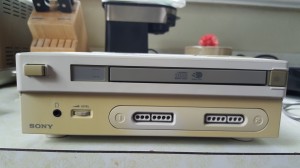
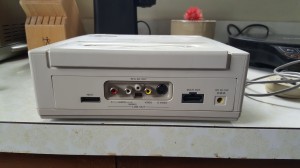
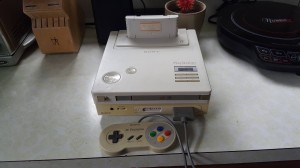
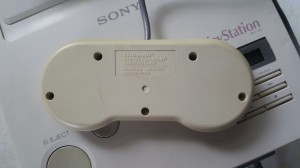
This is the once fabled console that has apparently been unearthed recently by Reddit user Dan Diebold, who posted pictures and a video of the Nintendo Play Station. The story goes that Diebold’s father worked as a maintenance man at Advanta Corporation, the company where ex-CEO of Sony Interactive, Olaf Olafsson, had moved to after the infamous Nintendo/Sony split. Olafsson apparently disposed of the prototype console, only for Diebold senior to rescue it from a dumpster and store in his attic, unseen, until now.
Whether these images are real or not, this got me thinking. I believe that Nintendo, through one costly decision made in 1991, not only changed the company, but also helped to shape the gaming landscape as we know it today.
In 1988, Nintendo was market leader, and deservedly so; NES was a huge success, and it wouldn’t be long until arguably the world’s greatest 16-bit console, SNES, would be released. This was also the year that Nintendo struck a deal with electronics giant Sony. The company was tasked with the job of producing a CD add-on for the SNES system which would enhance the cartridge-based SNES with higher capacity compact discs. Three years of development passed and Sony finally produced a stand-alone console that not only played new software from CD-ROMs, but also had a cartridge slot to play existing SNES titles. This, along with varying images of the prototype SNES add-on, were showcased at the Consumer Electronics Show in 1991, just under a year after SNES released.
This is where it gets interesting. In one of the most controversial decisions ever made in gaming history, Nintendo decided to partner with Sony’s rival Philips to produce the SNES CD add-on. This was off the back of apparent licensing disagreements between Nintendo and Sony, and so ceased what could have been a beautiful partnership between two of the greatest companies in the world. Unperturbed by Nintendo’s proverbial knife in the back, Sony decided to continue independently with the now rebranded PlayStation, and so set in motion a chain of events that completely changed the gaming landscape as we knew it.
So what were the repercussions? Well, Nintendo’s new partnership with Philips didn’t get very far. No add-on CD drive was ever released and Philips could only conjure up the diabolical console, the Philips CD-i, with some very questionable Nintendo licensed software produced for it. The console was a commercial failure and resulted in Philips pulling out of the video game industry and ending its relationship with Nintendo. Sony’s PlayStation was released in 1994 to critical acclaim with a host of first- and third-party titles and some of the most amazing graphics never before seen on a home console. Nintendo meanwhile found itself in an interesting position; it was not the popular kid anymore, and the subsequent cartridge-based N64 released in 1996 was no match for Sony’s grey, CD spinning goliath.
But it’s not just the Sony-versus-Nintendo saga that resulted. I feel that Nintendo’s knock-on effect went much further than one may initially think. Sony managing to enter the video game market, and putting the PlayStation cat amongst the Sega and Nintendo pigeons only served as a further catalyst for computer and software giant Microsoft to then enter the fray.
In a recent interview with IGN, former and current Xbox bosses stated that the original Xbox was “more about blocking Sony than anything else” as Sony had apparently stated when the PS2 was released that it wanted to “own the living room.” Now, I don’t want to then go on about the Xbox-versus-Sony rivalry that ensued; heck, this is a Nintendo site, after all! It is interesting, though, to think that Nintendo is partly responsible for creating a rivalry that it is not even part of. You could actually congratulate the company here. Although I’m positive it didn’t mean to, within the first 10 years of its very public split from Sony, Nintendo had inadvertently managed to blow open the console market and essentially double its competition. What maybe isn’t worth congratulating is, at the same time, Nintendo almost committing business suicide by creating competition that it was just not ready for.
And then there’s Sega. Some would say the real loser in all of this (aside from Atari, but that’s another story). Any gamer from the late ’80s and early ’90s will remember the huge rivalry between these two monoliths. Fans were either Mario or Sonic, and many of us I’m sure still hold their allegiance with one or the other (no prizes for whose side I stand on!). Sadly, Sega suffered after the console market became the much bigger beast that Nintendo unwittingly had influenced. I’m not saying that Nintendo killed Sega, or even Sony for that matter. Unfortunately, Sega fell victim to a mixture of poor management and bad business decisions at a time when it was imperative that the people who were steering the ship knew where they were going. Sony’s prominence in the market place with the PlayStation had the hardcore gamers of Sega’s Genesis generation jumping ship, and with the release of PS2 on the horizon in Japan in 2000, Sega’s Dreamcast launch a whole two years before suffered as a result.
By contrast, the Dreamcast’s debut in the west in 1999 was a huge success. This, however, was short-lived, and PS2’s launch a year after slammed the final nail in the coffin on any future Sega consoles. Again, it could have been so different; after it had been shunned by Nintendo, Sony was approached by Sega CEO and all-round toy genius Tom Kalinske to strike a deal for a possible Sega Play Station. This, much like the Nintendo partnership, never came to fruition.
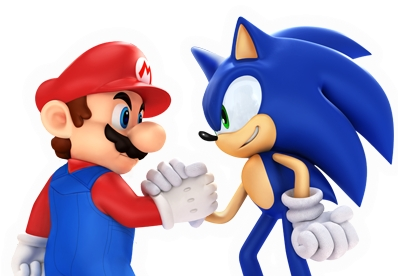
So far then, Nintendo’s relatively minor bang from CES ’91 has echoed through the last few decades, ending what would have been one of the biggest partnerships in gaming history. It created a whole new competitor by way of Sony; annoyed Microsoft just enough for it to make a console out of spite, it would seem; and buried Nintendo’s once arch nemesis Sega and its console dreams. As a result, Nintendo today still finds itself in the uncomfortable position of playing catch up against the two monsters they helped to create.
But what if Nintendo had continued with the Sony deal? Would the gaming landscape be much different? Would I now be playing Smash Bros. on the Nintendo PS4 or even Uncharted on the Sony Wii U? Would Microsoft still have released Xbox, or would we see another competitor attempting to block the Nintendo and Sony dominance? Apple, maybe? Who knows?
You could pick apart, analyze, and scrutinize all day long on the “what if’s” and “what could have beens” when Nintendo decided to back out of the Sony deal, but I take comfort in what has happened as a result of that fateful day in 1991 when I look around my own living room. Nintendo was brave enough to protect what it believed in from Sony, and for this I own a Wii U. Sony was brave enough to give Nintendo the finger and release its own console regardless, hence my PS4. And Microsoft, well, it was just downright cheeky enough to make a console because they could, ergo my Xbox One. It’s a great time to be a gamer, and I leave you with a quote from an unlikely source that I feel sums it all up nicely:
“You’ve got to embrace the chaos. That way, life just astonishes you.” – Hot Tub Time Machine




 ShareThis
ShareThis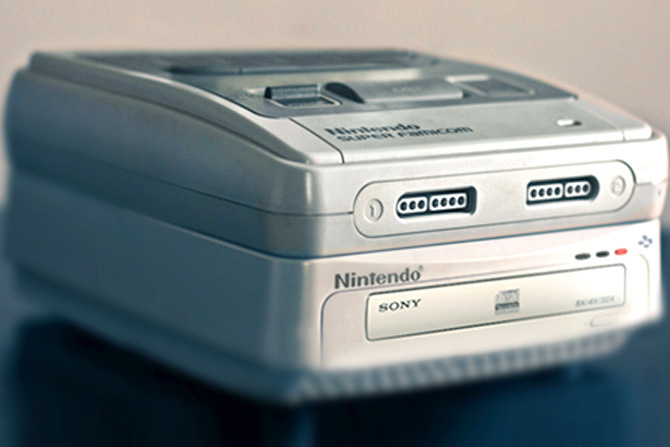








Good opinion piece. In hindsight this was a HUGE mistake by Nintendo, since it has been downhill for their home consoles ever since. On the other hand, having some competition is good even if Sony basically created the Playstation brand out of spite. They have been struggling ever since, not counting the sales of the Wii; but really that is a shovelware system only kept afloat by their own games, similar to the Wii U. I wish they would just release a powerful system so at least the third parties would make games for it, instead of shunning it. They are in the position now of doing whatever it takes to survive (mobile games, theme park stuff, Amiibo, etc) and that’s not good. I understand they are a toy company and always have been, but I would like to see a return to the top of the heap. I feel kind of screwed that the NX is already a thing, and the Wii U is basically finished. On the other hand, I’m happy with the games I have and what’s yet to come. If only they had made it more powerful and marketed it better.
Everything you’ve said here is wrong.
This statement lacks any logic or thought processes, and absolutely no evidence.
From what I heard Sony was asking a lot out of the deal. I think if this had been released Sony still would have made their own console eventually and we’d all be saying how stupid it was of Nintendo to partner with them and eventually create a new competitor instead of what we got. Although, I also think if Nintendo had gone with CDs instead of cartridges for the n64 that the PlayStation might have ended up as another 3DO or jaguar. Maybe not though. It’s fun to look at what if scenarios though. Good article.
Yeah, I read somewhere once that Sony wanted complete access to the entire codebase for everything inside the SNES, and Nintendo was afraid that Sony was going to take everything from the SNES and make their own console anyways using what they had learned from the inner workings of the SNES. Nintendo may have handled the breakup poorly, but it may have been for the better anyways.
I also agree the N64 sticking with cartridges was a bigger mistake. Totally understand why they did it, but that doesn’t mean it wasn’t a stupid move. Heck, if they hadn’t have gone with carts, FF7 is probably on the N64 and that alone would completely change the history of the two companies.
Let me clarify a few things. Nintendo did NOT stab Sony in the back. It’s quite common and usually expected in these situations for a company to seek out multiple contracts. Nintendo carried on with Sony during the Phillips contract and both Sony and Phillips knew about each other. The contracts fell through when Nintendo’s work on the N64 was coming along better than expected, so an external drive for the SNES would no longer be needed. The contracts were desolved, Phillips scrapped their project, and Sony planned to scrap their’s. ONE GUY, Count ’em, ONE at Sony begged to keep the project open. The Playstation inventor, Ken Kuteragi ( if I’m spelling that right). If not for him, the PS1 would be forgotten.
Nintendo announced their partnership with Philips at CES the day after Sony showcased their prototype SNES/Playstation, pictured above. I would say that is not common in business to effectively void three years work in such a public way. I’m sure Sony certainly weren’t expecting it either.
Point being Sony didn’t release the PS out of vengeance. When Kutaragi ( that’s right) claimed the ROM drive could be modified to work as a stand-alone unit, Sony executives tenuously went along with the project.
“Ultimate History of Video Games”
Steven L. Kent, Prima Publishing, 2001
P.S. You’re right, though: Sony didn’t go along with this until Nintendo told them they had decided to go with Phillips instead.
Videojuegos para la vida!
I’ll add that “what if’s” really are a frustrating thing to think about, but in any case games are games, and I don’t engage in fanboy wars, being that blind loyalty is never good when what has happened with Wii U is a shame. So if I want to play a first party Nintendo game, I get a Nintendo system. Same with the other systems-I want to play Halo, and games like Uncharted so I get those systems too. However, Nintendo is ALWAYS my first choice, handheld and console even though I will wait and see what happens once the NX comes out. I’m really hoping it’s great, and that we also see some “only for New 3DS” titles coming out. I hope they don’t drop the New 3DS anytime soon, it’s the definitive version of the 3DS for sure.